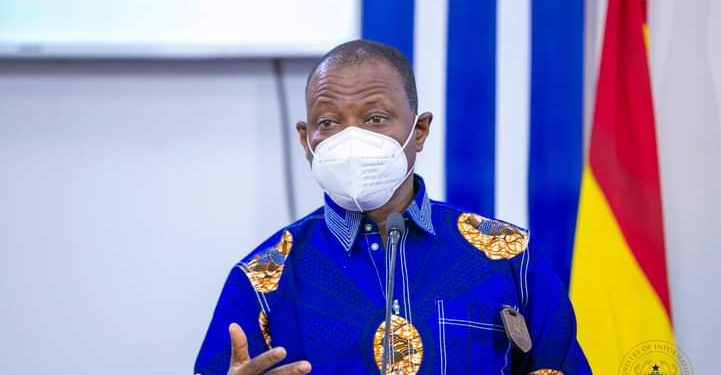GHS intensifies border surveillance over outbreak of Ebola, Marburg virus in neighbouring countries

The Ghana Health Service (GHS) says it has intensified surveillance at the country’s borders following the outbreak of Ebola and Marburg Virus in neighbouring Ivory Coast and Guinea respectively.
Ghana’s immediate neighbour to the West, Ivory Coast, confirmed a case of Ebola on Saturday, August 14, 2021, while the Marburg virus has already claimed several lives in Guinea since the outbreak was reported on August 9, 2021.
The health management authority says it has sent correspondence to all regional and district health directorates across the country to immediately institute Marburg and Ebola preparedness and response systems to prevent the diseases from entering Ghana.
“The Ghana Health Service and its partners have activated our systems since the onset. We have structures for all our rapid response at the borders, and they have been alerted with the fact about both Ebola and Marburg. Alerts have been sent to the regions and the district about the Marburg operation. The Ebola one will be leaving today, but we have started discussions with all our regional leaders, so they start preparations for that. The good thing is that some interventions that are currently in place can also be used to respond to this. Ghana has the capacity to test such cases at Noguchi for both the Ebola and Marburg disease. Public education and sensitization have already been initiated”, Director General of the Ghana Health Service, Dr. Patrick Kuma-Aboagye said at a media engagement on Sunday.
He further added that despite the closure of the country’s land borders, surveillance on the country’s western border, in particular, will be strengthened.
“We are going to heighten the public health surveillance at our borders, especially the Western border where we have Ivory Coast and countries where we have discovered the virus. Currently, the borders are closed, we have to ensure that those necessary checks are done for those who will enter illegally. So we are currently collaborating with the Immigration Service to ensure that these things are sorted out. We are equipping our port health staff, so they can screen and look at that. ”
Marburg virus is a haemorrhagic fever virus of the Filoviridae family of viruses and a member of the species, genus Marburg virus.
Health experts say the Marburg virus belongs to the same family as Ebola, and the virus is considered to be highly infectious.
The Marburg virus disease is transmitted to people from fruit bats and spreads between humans through the transmission of bodily fluids.
It is a severe, often fatal illness with symptoms including headache, fever, muscle pains, vomiting blood and bleeding.
The first-ever Marburg outbreak was in Germany in 1967 where seven people died.
In Africa, previous outbreaks and sporadic cases have been reported in Angola, the Democratic Republic of the Congo, Kenya, South Africa, and Uganda, the World Health Organization (WHO) says.
Cases are extremely rare, with the last major outbreak in Angola in 2005.
The virus killed more than 200 people in Angola in 2005, the deadliest outbreak on record, according to the global health body.
Preventive measures include:
- Avoid contact with body fluids (such as urine, saliva, sweat, faeces, vomit, breast milk, and semen) of people who show symptoms.
- Practice hand hygiene: frequent handwashing with soap under running water, or use an alcohol-based sanitiser.
- Do not handle items that many have come in contact with an infected person’s body fluids.
- Avoid contact with dead bodies, including participating in funeral or burial rituals of suspected or confirmed Marburg cases.
- Seek medical care immediately (the nearest health facility) if one develops fever (body temperature 38C or above) or other symptoms such as severe headache, fatigue (feeling very tired), muscle pain, vomiting, diarrhoea, stomach pain, or unexplained bleeding or bruising.








